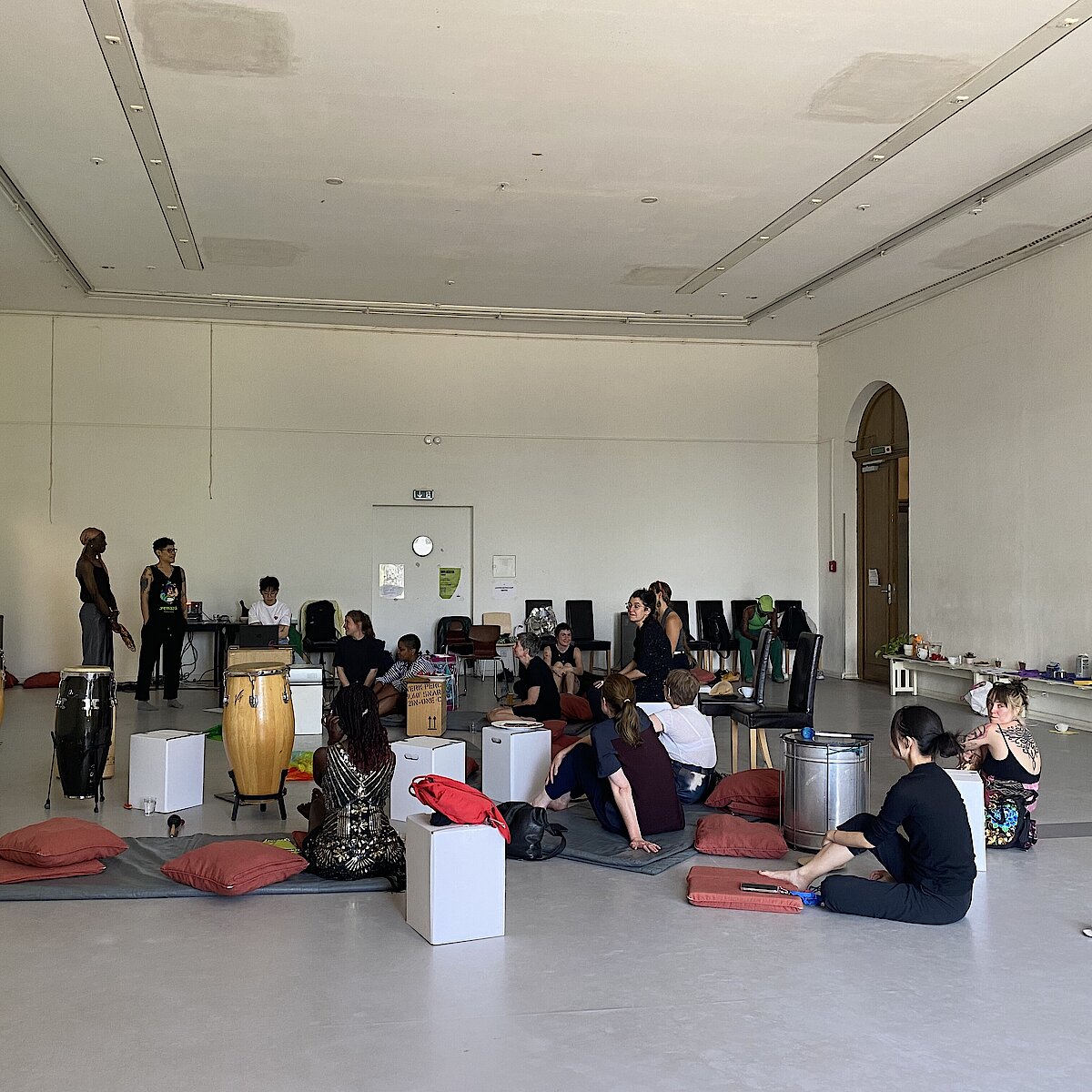


Für das LAB II kamen Alex Díaz Loo und Gerald Odil Ronnie zusammen, um aus der Perspektive der LGBTQIA+ Community zu Widerstand und Resilienz in den Darstellenden Künsten, speziell in Peru und Uganda, zu forschen.
KONTAKT UND INFORMATION
Malin Nagel
m.nagel@iti-germany.de
16. - 21. Juni 2025: LAB II_A haven of joy and resistance (Research Phase)
21. Juni 2025, 11 - 13 Uhr: OPEN LAB II @ Studio2 / ITI Germany
Wenn Alex D. Loo und ihre Trommelensembles Bomba Cuir und Yemayá künstlerische Interventionen für Frauen- und LGBTQI+ Rechte im öffentlichen Raum in Arequipa und Lima (Peru) organisieren, sind sie mit Gewalt und drohender Verhaftung konfrontiert. Mit kollektiver, fröhlicher und trotziger Musik und Tanz treten sie der staatlichen und gesellschaftlichen Gewalt entgegen.
12.140 Kilometer entfernt, in Kampala (Uganda), riskieren queere Menschen ihr Leben, wenn sie es wagen, frei in der Gesellschaft zu leben. Gerald Odil Ronnie und das queere Künstler:innenkollektiv Anti-Mass haben als Antwort auf Unterdrückung und Hass Refugien der Freude, Liebe und Ekstase geschaffen.
Im LAB II stellen Alex und Gerald den dissidenten, nicht-normativen Körper in den Mittelpunkt ihrer künstlerischen Forschung als ein kraftvolles und sensibles Werkzeug für politischen Aktivismus und Widerstand. Sie werden mit Berliner Künstler:innen, Aktivist:innen, Musiker:innen, Trommelensembles und Community-Initiativen zusammen kommen und sich austauschen.
Am Ende des LAB II laden Alex und Gerald zum Open LAB ein: Es werden Texte, Klänge, Rhythmen und Materialien vorgestellt, die während der Forschungswoche entstanden sind. Im Austausch mit dem Publikum berichten die beiden Residents über ihre künstlerische und aktivistische Arbeit.